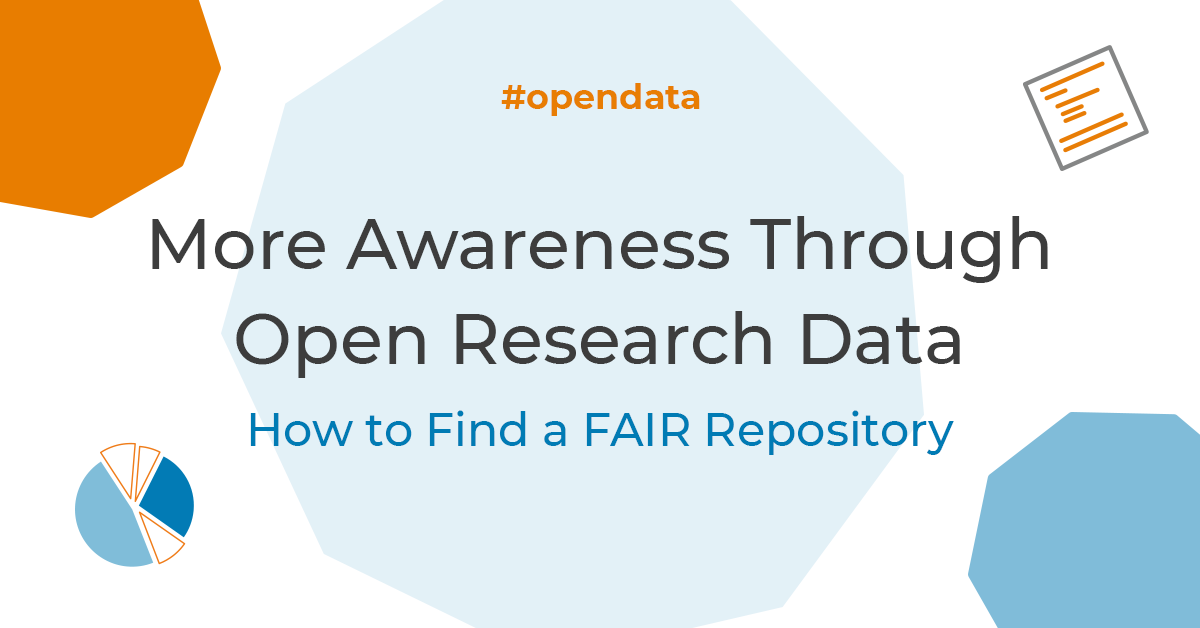Would you like to store your research data securely for the long term and make it easy to find on a repository that follows the FAIR principles? But how can you find a FAIR repository? In this blog post a search strategy is described for you.
When you use a FAIR data repositor, it facilitates or enables you to make your data FAIR (Findable, Accessible, Interoperable and Reusable). This allows you to benefit from many advantages, such as a greater impact of your research. Unfortunately, finding the right repository is not always easy. This is because there is no central directory of all FAIR repositories.
The following search strategy will help you to find a suitable repository:
Use these steps to find a FAIR repository
- Check if there are any guidelines from your institution or research funding organisation for selecting a repository.
- Start your search:
- Use the Repository Finder. You can search for repositories that support the FAIR principles.
- Use other search options: Fairsharing.org contains repositories, among others.
- Look for discipline-specific data repositories: examples include SowiDataNet|datorium and OpenICPSR.
- Consider cross-disciplinary repositories: Zenodo and the Open Science Framework (OSF) are among them.
- Still not getting anywhere with these tips?
- Evaluate interesting repositories you find for suitability using the checklist "How to recognize a FAIR repository"
- Seek further support, for example in your library: there is often know-how available on how to deal with research data and also on requirements that you have to consider on the part of your institution when selecting a repository.
Are you interested in more information about FAIR data? You can find information on how to make data FAIR in the Open Economics Guide's introductions and in the blog post "More impact through FAIR research data. Use these tools to check the FAIRness of your data".
